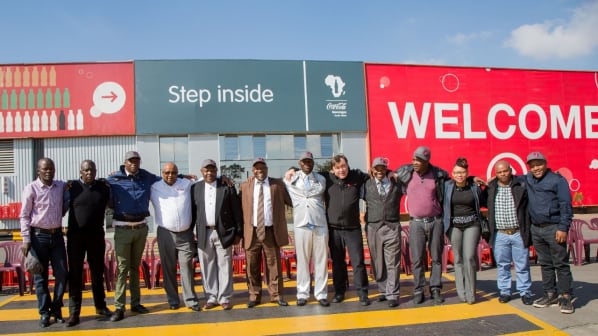The company has chosen to exercise its right to acquire ABI's stake in CCBA because it wants to implement its long-term strategic plan in these markets with other partners.
Regulatory approval process
CCC will continue negotiations with potential partners, and plans to refranchise CCBA following regulatory approval.
A Coca Cola spokesman has decline to comment on potential partners.
CCC says while it respects ABI's capabilities, it has a number of existing partners who are ‘highly qualified and interested in these bottling territories’.
CCBA began operations in July, initially spanning 11 countries with plans to expand to 14 countries. It is based in South Africa, with more than 30 bottling plants spanning southern and eastern Africa.
During the next few months the company will negotiate the terms of the transaction with ABI, which will later be followed by a regulatory approval process.
AB InBev's takeover of SABMiller completed late yesterday as planned.
Change-of-control clauses
At SABMiller, 95% of votes supported the offer from AB InBev: comfortably above the 75% required. The two largest shareholders, Altria and BevCo (who were treated as a separate class of shareholders and thus excluded from the vote) had already pledged their support for the merger.
The combined company will take AB InBev’s name and see the SABMiller name disappear, with the company formally called ‘Anheuser-Busch InBev SA/NV’.

The deal was initially agreed last year: but AB InBev revised its offer in July following the Brexit vote.
According to the Wall Street Journal, despite CCC’s decision to exercise the change-of-control clause for CCBA, AB InBev will continue to have some interest in Coca-Cola bottling operations. The brewer’s deal for SABMiller gives it a 20% interest in France’s Castel Group, which bottles Coca-Cola products in more than a dozen African countries, including Algeria and Tunisia.
The company also retains SABMiller’s soft-drink bottling businesses with Coca-Cola in El Salvador and Honduras, which account for less than 1% of Coke’s volume. A spokesman said those agreements would be handled separately at a later date.
Coca-Cola typically insists on change-of-control clauses with its bottling partners, giving the company the right to buy out a partner’s share if the partner is acquired by someone else.
